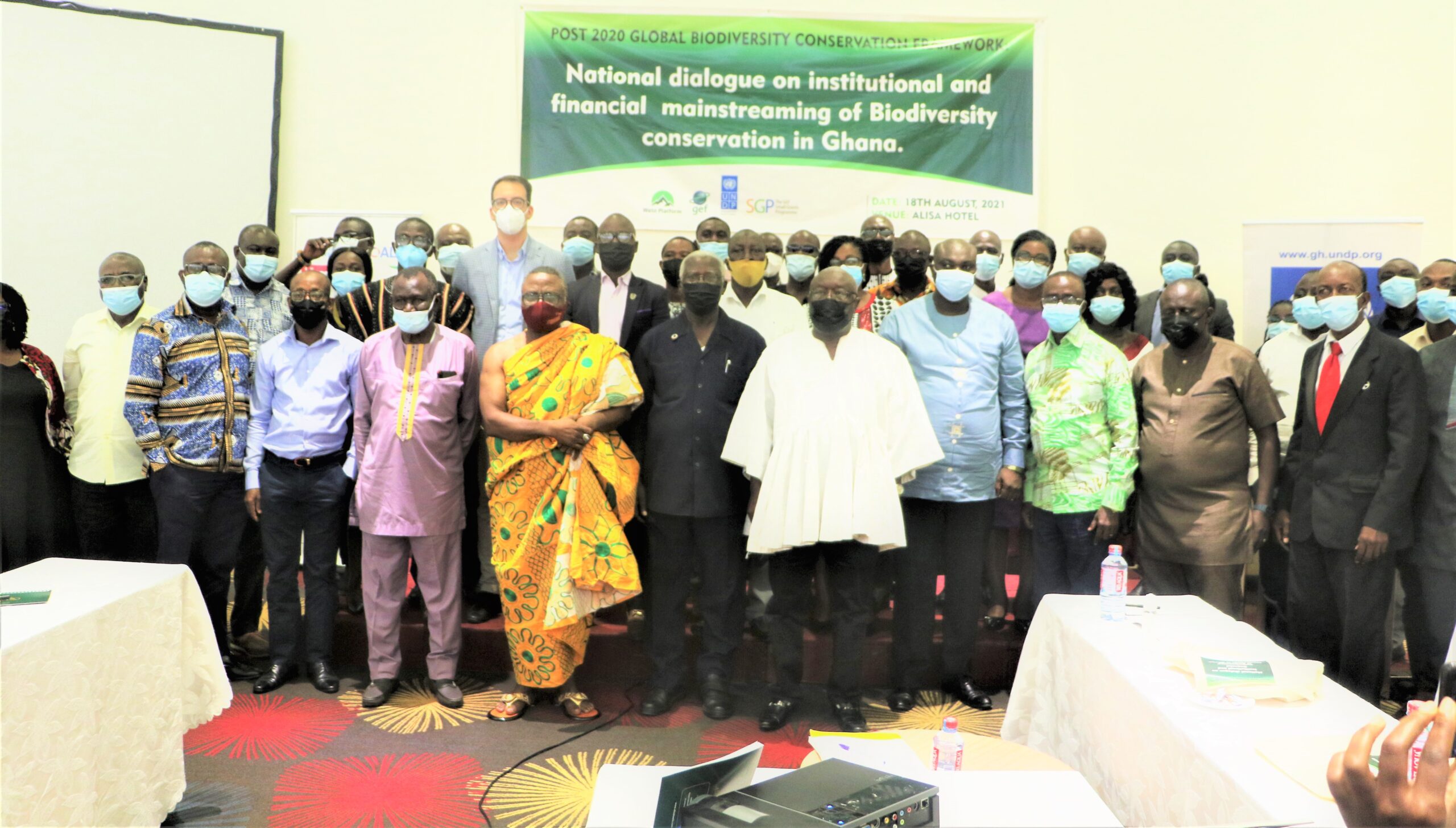Ghana has a rich stock of biological diversity with enormous benefits. These benefits range from economic, environmental, social, religious, and recreational. Indeed, biodiversity underlies the goods and services provided by ecosystems that are crucial for human survival and well-being. Unfortunately, human activities such as unsustainable farming, illegal logging and mining, overfishing, hunting, wildfire, and environmental pollution, have significantly contributed to the loss of biodiversity around the world.
To tackle the underlying causes of biodiversity loss, a post-2020 global biodiversity framework is drafted. This is to address direct and indirect drivers of biodiversity loss and harness the power of nature to secure human wellbeing, security, and a path out of poverty for billions of people.
As part of preparation towards the implementation of the post-2020 global biodiversity framework, the United Nations Development Programme (UNDP) through the Global Environment Facility-Small Grants Programme in collaboration with the Ministry of Environment, Science, Technology, and Innovation (MESTI) convened a stakeholder dialogue to mobilize support for biodiversity conservation in Ghana.
The Minister for Environment, Science, Technology, and Innovation, Hon. Dr. Kweku Afriyie called on stakeholders to prioritize biodiversity conservation and sustainability to ensure the full protection of the environment.
“As a nation, we need to invest in biodiversity conservation to avoid the global disasters that will undermine our development. We also need to protect our planet for future generations, and live in harmony with nature,” Hon, Dr. Afriyie added.
In a speech read on her behalf, Angela Lusigi, Resident Representative of UNDP in Ghana, underscored the importance of biodiversity restoration to the protection of people and the planet.
“Our collective survival depends on robust ecosystems, so we must work together to further scale up actions in Ghana to build the resilience of communities and ecosystems”, she stated.
Indeed, the COVID-19 pandemic and other emerging crises such as climate change are stark realities in our face and a reminder of the consequences of ecological fragility and complexity.
A threat to any species is a threat to the survival of all, including humans. Therefore, protecting biodiversity and restoring ecosystems must reflect in both local and national development interventions, as this will accelerate the attainment of the Sustainable Development Goals.

